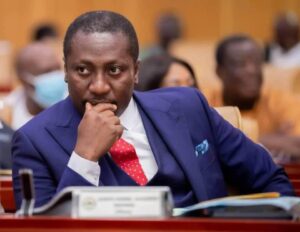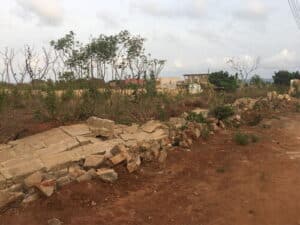The President of the Republic, Nana Addo Dankwa Akufo-Addo, is certain that open and constructive discussions on Climate Prosperity Plans will not only be about about policies and investments but will also focus on nurturing a future where prosperity and sustainability coexist and where forged partnerships will be a precedent for global climate action.
It is President Akufo-Addo’s fervent belief that, as President of one of the sixty-eight nations at the forefront of the climate crisis, he is convinced that these “CPPs are more than just plans; they define the lifelines of our nations, designed to channel investments towards sustainable socio-economic development and prosperity.”
According to him the necessity of CPP-centred climate action is driven from “the urgency to safeguard the 1.5-degree limit set by the Paris Agreement, which is not merely an environmental imperative, but also an economic necessity for our countries.”
He asserts that, “overstepping this threshold would exacerbate the fiscal challenges we face, hinder access to capital, and escalate the costs of adaptation, thus, severely undermining our pursuit of prosperity and the achievement of the SDGs.”
President Akufo-Addo has been speaking at the at the CVF Leaders’ Investment Roundtable, at Buolstrasse 5, Davos Platz, in Switzerland, on Tuesday, 16th January, 2024, happening on the sidelines of the annual World Economic Forum.
It is in favour of such aspirations, he said, that “the transformation of the CVF into an independent intergovernmental organisation in December 2023 stands as an important step towards fostering South-South cooperation, and unlocking investment opportunities in our member states with Climate Prosperity Plans (CPPs) as our blueprint.”
With the CVF-V20 Independent Secretariat headquartered in Ghana, he added that this shift, “will therefore allow for a greater influx of international investments into commercially viable and climate-resilient projects within the Global South.”
He noted that, with their primary function working as conveyor belts aiming to transport investments and prosperity efficiently, their success hinges on catalytic deals that help to release capital for a broad scope of CPP projects encompassing renewable energy, integrated with storage solutions, like solar, offshore wind, geothermal, hydro, along with grid modernisation and micro-grids, and improving energy efficiency in the industrial sector.
In addition to these, President Akufo-Addo said, “they focus on broadening and diversifying the supply chain, particularly in manufacturing areas related to transition, critical minerals, and recycling efforts”, with all of such infrastructure and business ventures required to be adaptable and resilient to change under this scheme.
Citing the innovative Bangladeshi example, he said, they were able to utilise “their CPP to tap into the Resilience and Sustainability Facility of the IMF, securing US$1.4 billion as early-stage financing,” thus strategically being allowed to have a stake in the project and facilitating the leverage of US$8 billion.
“Ghana has also presented a number of renewable energy projects –10,000 megawatt renewable energy project, the Bui Solar project, Microgrids in Off-Grid Communities, Enhancing the Adaptive Capacity of the Akosombo Dam and Lower Volta, amongst others,” he disclosed.
He was hopeful that the discussions will delve into how such “mechanisms can help achieve the ambition in our CPPs, mitigating climate risks, and seizing opportunities presented by the green transition.”






